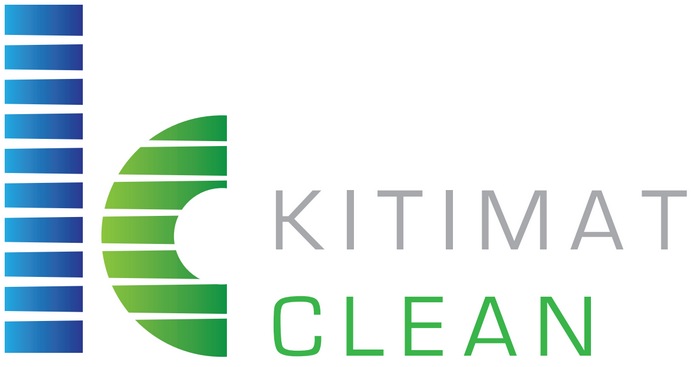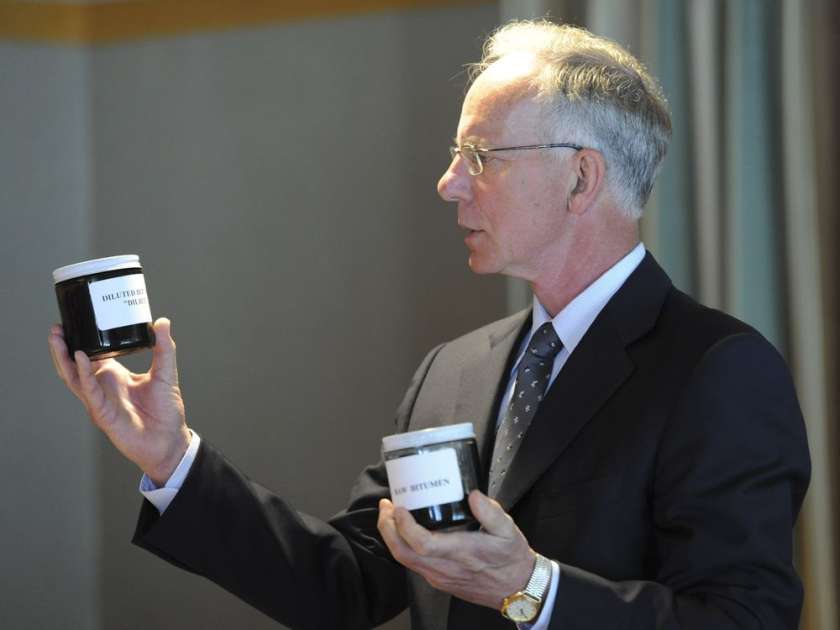
KITIMAT CLEAN PRESS RELEASE
April 24, 2019
It is great to hear that Premier Horgan and Premier Kenney are interested in working together to help both provinces.
They are on different sides regarding BC pipelines and the movement of oil through BC. However, there is a solution for that that works well for both provinces, improving each economy and each environment.
We can build a major green Canadian refinery on the coast to handle 400,000 barrels of pure bitumen per day delivered by train. It solves the pipeline difficulty, the tanker spill worries along BC’s coast, and reduces global warming an enormous amount. It also creates a lot of new jobs in both provinces, adds a lot of new government tax revenues and improves revenues for Alberta oil producers.
Is it difficult to get the public and First Nations to agree? I don’t believe so. I have had fifty meetings with them and had no pushback. They recognise that reducing environmental problems is critical. There is real concern about a northern diluted-bitumen (dilbit) pipeline and dilbit tankers, but not about the Kitimat Clean plan. Its website is available for everyone to see.
Fossil fuels will be in use for quite a while as the world’s population grows. BC will require them too, even if a lot of our cars become electric. Renewable electric energy from solar panels and wind do not work well in a climate like ours at our latitude, so a lot of major dams will need to be built to generate the electricity required, unless we move to nuclear reactors. Since we will not be able to move quickly away from fossil fuels, to reduce global warming we must reduce emissions while the fuels are still in use.
Every large refinery in the world has to be built on an ocean coast for economic reasons. As an example, the capital cost per barrel of one constructed on the BC coast will be one-quarter of that incurred at the newly built Edmonton Northwest Refinery. Alberta producers will suffer if the refining cost is kept high.
To easily and safely transport bitumen across the provinces we need to build a major Diluent Reduction Unit (DRU) near Edmonton so that pure hard cold bitumen can be carried by dedicated trains to the closest coastal site, at Kitimat. Any derailment spill can then be picked up with a backhoe. The very large DRU will create a major investment and a lot of operating jobs in Alberta.
The refinery itself will cost $22 billion and be very profitable. A top Canadian bank has said that it will be able to raise all the required funding.
This cost estimate includes several billion dollars to make the refinery green, saving 23 million tonnes per year of CO2 emissions compared to every other bitumen refinery in the world. The extra cost will be recouped over time. We will develop a very clean plant the rest of the world can copy as they continue to build refineries. If we ignore this opportunity we deliberately worsen global warming.
Products coming out of the refinery will be gasoline, jet fuel and diesel. If there is ever a tanker spill in BC coastal waters these liquids will float and evaporate, not endangering the waters or the fishery. As you know, about half of any spill of diluted bitumen (dilbit), on the other hand, will immediately sink and destroy the waters and the fish according to Federal studies. This is caused by the excessive grit in BC ocean water as a result of BC river water.
The refinery will result in thousands of new union jobs for BC. This is completely different from similar large investments in projects like dams and LNG plants that employ only a few hundred operating personnel. It will generate annual taxes of over $1 billion for governments which is also completely different.
Transport savings for oil producers will amount to $10 to $15 per barrel when compared to shipments to the current markets of Houston and Los Angeles. The Province of Alberta alone will earn up to an extra $1 billion per year if it has 200,000 barrels of its own royalty bitumen to send to Kitimat every day. Shipping 400,000 barrels of pure bitumen per day by train is equivalent to shipping 560,000 barrels per day of diluted bitumen by pipeline. But it saves the large cost of buying and moving the diluent. And it saves the capital cost of building the pipeline. Also Edmonton is far closer to Kitimat than it is to its current dilbit markets, and Kitimat is far closer to future overseas Asian markets than Houston is, so movement costs will be much lower.
This project is good for BC and Alberta. We can work together and get it done. A combination meeting with advisors from each province is the way to start.


